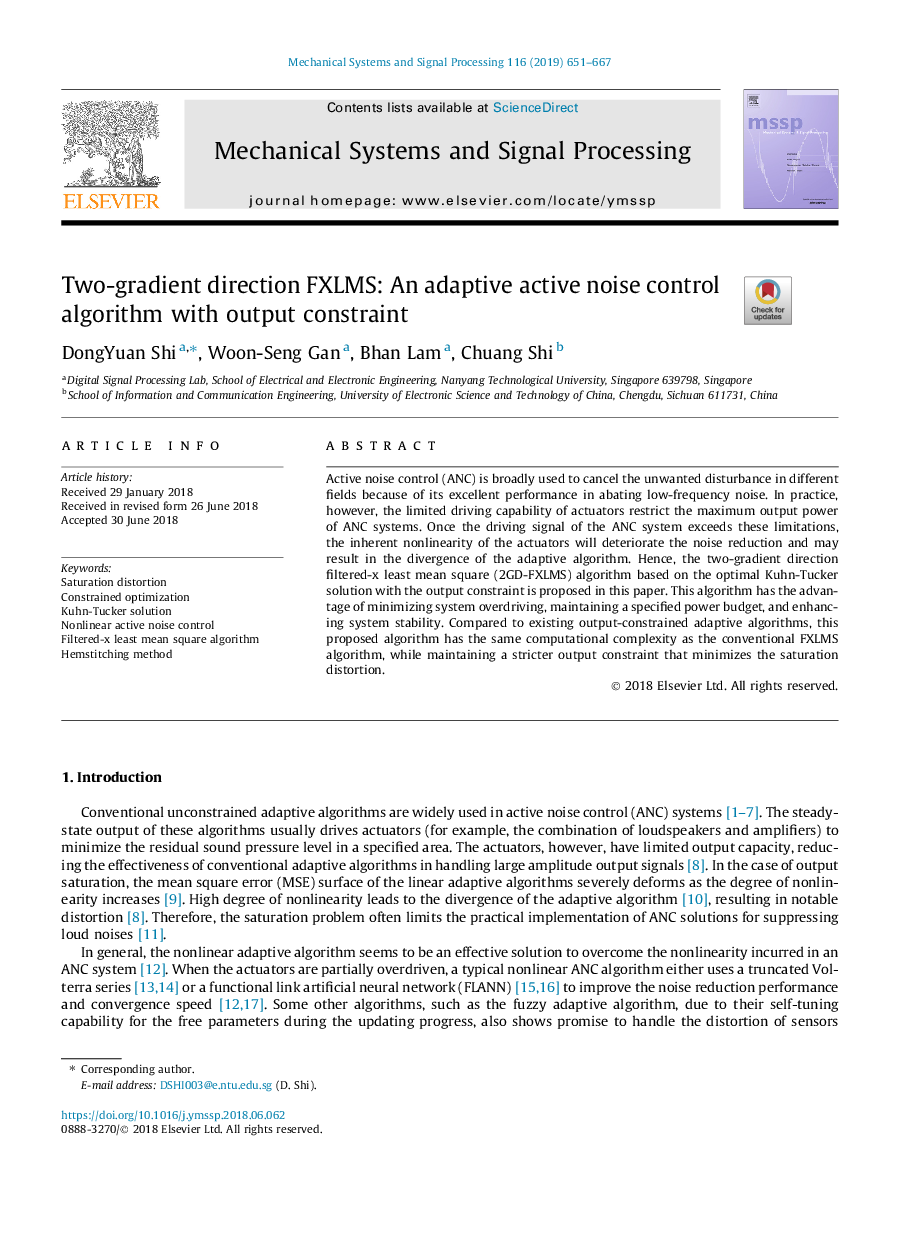| Article ID | Journal | Published Year | Pages | File Type |
|---|---|---|---|---|
| 6953477 | Mechanical Systems and Signal Processing | 2019 | 17 Pages |
Abstract
Active noise control (ANC) is broadly used to cancel the unwanted disturbance in different fields because of its excellent performance in abating low-frequency noise. In practice, however, the limited driving capability of actuators restrict the maximum output power of ANC systems. Once the driving signal of the ANC system exceeds these limitations, the inherent nonlinearity of the actuators will deteriorate the noise reduction and may result in the divergence of the adaptive algorithm. Hence, the two-gradient direction filtered-x least mean square (2GD-FXLMS) algorithm based on the optimal Kuhn-Tucker solution with the output constraint is proposed in this paper. This algorithm has the advantage of minimizing system overdriving, maintaining a specified power budget, and enhancing system stability. Compared to existing output-constrained adaptive algorithms, this proposed algorithm has the same computational complexity as the conventional FXLMS algorithm, while maintaining a stricter output constraint that minimizes the saturation distortion.
Related Topics
Physical Sciences and Engineering
Computer Science
Signal Processing
Authors
DongYuan Shi, Woon-Seng Gan, Bhan Lam, Chuang Shi,
